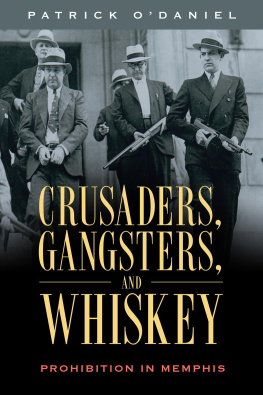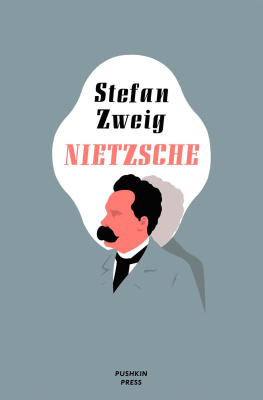This edition is published by Arcole Publishing www.pp-publishing.com
To join our mailing list for new titles or for issues with our books arcolepublishing@gmail.com
Or on Facebook
Text originally published in 1948 under the same title.
Arcole Publishing 2017, all rights reserved. No part of this publication may be reproduced, stored in a retrieval system or transmitted by any means, electrical, mechanical or otherwise without the written permission of the copyright holder.
Publishers Note
Although in most cases we have retained the Authors original spelling and grammar to authentically reproduce the work of the Author and the original intent of such material, some additional notes and clarifications have been added for the modern readers benefit.
We have also made every effort to include all maps and illustrations of the original edition the limitations of formatting do not allow of including larger maps, we will upload as many of these maps as possible.
THE CRUSADERS
BY
STEFAN HEYM
NOTE
THIS is a historical novel despite the fact that to many of my generation the events portrayed here are not history in the sense of retrospect but part of their livesand possibly a very important part. But books are not written for the current year alone; and those about this war will in time assume the color of history.
Certain events described in this book took place. There was a Fourth of July leaflet; the American Army helped to liberate Paris, and it operated a radio station in Luxembourg. It fought the Battle of the Bulge and it encircled the Ruhr area. There were Germans penetrating our lines in American uniforms, and some of them were executed. There is a mining village called Ensdorf, and the tragedy of the Woman of Ensdorf, by and large, happened as I wrote it. And there was also a man named Kavalov. The stories of these two people I took from life. I think they are worth it.
All other characters and their connection with events, actual or fictional, are purely my own invention. Should anyone find that he has done similar things or expressed himself in a similar way, under circumstances similar to those related in this book, he may feel pleased, or perhaps peeved, imagining that he has ended up in the printed word. But it isnt he at all. It is somebody else who came out of my typewriter.
S. H.
Book OneFORTY-EIGHT ROUNDS FROM FORTY-EIGHT GUNS
1
THE GRASS, this good, soft, lush grass. You could lie in it, and if you stretched out flat, the grass about you would be as high as your body. It would sway in the wind which came from the Channel, from the beachheads still strewn with the remnants of invasion, the gear thrown off in battle, the fragments of German guns, the vehicles smashed and twisted. At moments, it seemed to Bing that this wind still carried a trace of the heavy, sweet odor of the dead. But that could not bethe dead had been buried in the dunes of Omaha and Utah. He himself had seen the parties of German prisoners dig the graves; and now the graves were filled up with bodies and sand, and the wind caressing the grass around him had caressed the crosses in the dunes.
He turned his head sideways. Between the leaves of grass he could see the Chteau, Chteau Vallres, with its round tower, its dilapidated roofs, its small, half-blind windows. At a distance, from the shed near the brook flowing into the still moat which closed like a dark green belt around the Chteau, sounded an unceasing, steady flap-flap-flap; the tenants two daughters, fat and strong, with crude red faces which made it difficult to distinguish which one was Manon and which Pauline, were beating clean the washthe shirts and pants and drawers and socks and undershirts of the Detachment.
It was a fine day for washing, Bing thought. In a little while, Manon and Pauline would emerge from the shed and hang the wash. Stretching themselves, they would try to reach the line suspended between the trees of the copse near the brook, their skirts would slide up, and between the hems of their skirts and the tops of their black wool stockings, a strip of the red flesh of their thighs would show.
Bing folded his hands behind his head and turned his eyes toward the sky. The sky was blue. It didnt have the depth of the English sky he had seen before he went into the invasion; it was different. It was Continental sky, the sky he remembered from his boyhood. Not a cloud in this light-flooded sky. Insect-like, an observation plane crawled across, its thin drone swallowed by the height. Except for the plane, there was peace.
The girls came out of the shed, the wet wash in their plump arms. Bing got up and slowly walked toward them.
Bon jour, mes petites, he said.
Bon jour, Msieur le Sergent, said Manon, and the sisters giggled. When will you have my laundry? And I want my shirt pressed, this timeyou wont forget?
Will you have du chocolat for us? asked Pauline, closing her eyes as if she were tasting the melting chocolate on her tongue.
We will see, we will see. Youre round enough as is.
Tomorrow evening, maybe, said Manon, we will have finished. The sun is good, everything will dry fast. But there is no hurry. You are not going to move out.
You are very clever, said Bing. How do you know?
They giggled again. Le Capitaine Loomis, he has had two soldiers carry the big bed of the Comtesse into his room. It has a canopy, this bed has, a light green canopy full of dust, and the soldiers were sneezing and cursing, you should have heard them. And Monsieur le Commandant Willoughby, he has ordered two geese killed for tomorrow night, and he has sent the Sergent Dondolo to Isigny to buy cheeses.
Pauline broke in. This Dondolo! He is the one! He trades your cigarettes for Calvados, and then he sells the Calvados to the soldiers. A very shrewd man. He will be rich.
Bing laughed. You dont think I will be rich?
Pauline and Manon both studied him. Then Manon said, You? You are too serious. You always think.
He did not answer. The girls began to hang the wash.
The drawbridge over the moat had not been raised for generations. Its hinges and chains were corroded by rust; its aged wooden planks groaned each time one of the heavy American trucks drove over it into the courtyard of Chteau Vallres.
Lieutenant David Yates stood on the bridge, his back against the railing his feet nervously crushing and breaking the fine splinters which formed the top layer of the wood. The sun beat down on him from the sky; under his helmet, his head felt like a piece of dough shoved into the oven and about to rise. From the moat, a second, reflected, wave of heat was coming at him, carrying with it the foul smell of decaying water plants.
Yates wiped away a drop of sweat that was trickling from behind his ear and making its itching way down the side of his neck. He felt sticky and dirty and uncomfortable. Added to everything else was the acute misery of being unable to make up his mind. The dark, cavernous shade of the Chteaus interior, the possibility of going to the pump to splash his face and hands, lured him; but he didnt dare leave the bridge for fear of missing Bing and having to delay the start of his mission. It was the same as standing at a street corner, back home, to hail a taxi. No chance. The few that came by would be filled up. But step off the curb to walk or catch the streetcar, and not only would the long-awaited taxi arrive, but somebody else would take it.













